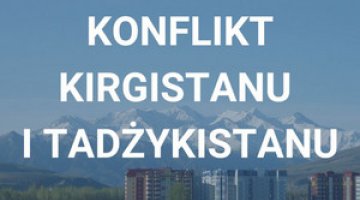Kyrgyzstan: weak government in hard times
On 14 July in Kyrgyzstan, the government created after the overthrow of President Kurmanbek Bakiyev, which was composed of leaders of the opposition, was replaced by a government of technocrats, which is intended to run the country until the parliamentary elections planned for October. It must be expected that the new government, which is made up of people with weak political positions, will be even weaker than the previous one, and real powers of government will be very limited. In this context, their most difficult task is to stabilise the still very tense situation in the south of the country.
The new government includes unfamiliar politicians who had held government positions during the rule of the former presidents Bakiyev and Askar Akayev. The aim of this change was to avoid a situation in which the work of the government would be paralysed by the pre-election rivalry of the previous ministers, who are also party leaders. However, its most visible effect has been to move the centre of political life away from the government, since the cabinet of the previous interim regime is supposed to continue working (carrying out the functions of parliament, which was dissolved in April), and thus, de facto to take the most important decisions.
One month after the bloody clashes in two southern regions of the country, a state of emergency is still in force. Reports continue to come in about the lawlessness of local military leaders, the brutal pacification of the countryside, the detention of people for ransoms, and protests by the local Uzbek community, which according to unconfirmed reports is the main target of the repression. The humanitarian situation is very poor.
The new government’s weak position, the unclear role of the previous cabinet, the worsening rivalry before the elections and the extremely low level of trust in the organs of state (especially the power institutions) mean that any improvement in the situation, especially in the south of the country, seems unlikely. If it worsens, further outbreaks of violence cannot be ruled out. <MMat>



